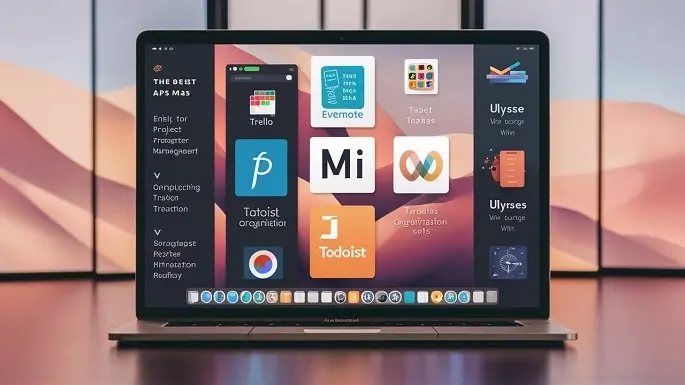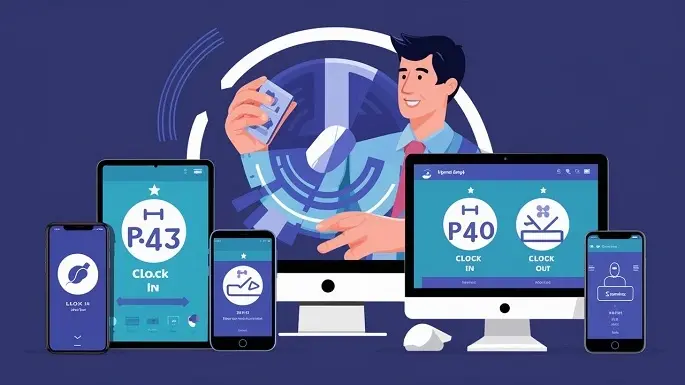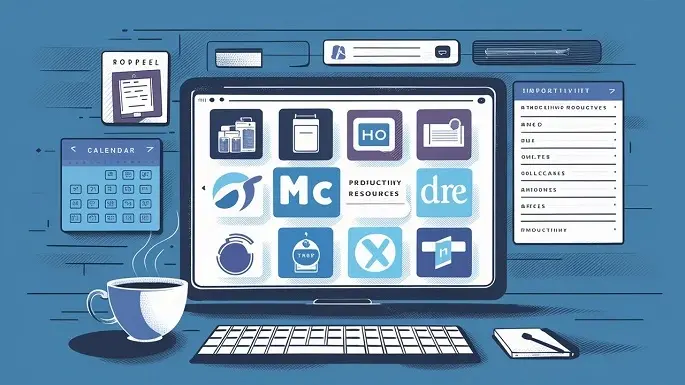In today's fast-paced business landscape, remote work has become more prevalent than ever. As organizations adapt to this new paradigm, effective management of remote employees becomes a priority. One critical aspect of remote workforce management is time tracking. In this article, we'll delve into the significance of remote employee time tracking, its benefits, challenges, and how businesses can leverage technology to streamline the process.
Remote work offers unprecedented flexibility, but it also presents challenges in terms of monitoring employee performance and ensuring accountability. This is where remote employee time tracking comes into play.
The Importance of Remote Employee Time Tracking
Tracking remote employees' work hours isn't just about ensuring they're putting in the required time. It's about measuring productivity and understanding how time is allocated to various tasks. Remote employee time tracking provides insights into work patterns, allowing managers to make informed decisions.
Benefits of Implementing Remote Employee Time Tracking
Enhanced Productivity
With accurate time tracking, managers can identify peak productivity hours for each employee. This knowledge enables effective task delegation, leading to improved efficiency and timely project completion.
Accurate Project Management
Time tracking helps project managers allocate resources more effectively. It enables them to identify potential bottlenecks and make adjustments to meet project deadlines successfully.
Transparent Client Billing
For businesses that offer services based on billable hours, remote employee time tracking ensures transparency in client billing. This not only enhances trust but also minimizes disputes.
Challenges in Remote Time Tracking
Lack of Accountability
Remote work relies on trust, but without proper time tracking, accountability can become an issue. Time tracking fosters responsibility and ensures employees meet their commitments.
Ensuring Data Privacy
Collecting employee work data must be done while respecting privacy regulations. Striking a balance between data collection and employee privacy is crucial.
Time Zone Variations
Remote teams often span across different time zones. Tracking work hours accurately becomes complex due to varying schedules, requiring sophisticated tools to manage this challenge.
Technological Solutions for Remote Time Tracking
Time Tracking Software
Time tracking software offers automated solutions for recording work hours. It provides real-time data and analytics, simplifying the management of remote teams.
Biometric Authentication
Biometric technology adds an extra layer of security to time tracking. Features like fingerprint recognition ensure that the right employee is logging their hours.
Integration with Project Management Tools
Integrating time tracking with project management tools creates a seamless workflow. This integration enhances collaboration and ensures all work is accurately accounted for.
Best Practices for Effective Remote Time Tracking
Set Clear Expectations
Clearly define remote work expectations, including punctuality and task completion. This clarity sets the foundation for successful time tracking.
Choose the Right Tools
Select time-tracking tools that align with your business's needs. User-friendly interfaces and cross-platform compatibility make adoption easier for remote teams.
Encourage Regular Check-ins
Regular virtual check-ins foster a sense of belonging and keep employees engaged. These interactions provide opportunities to discuss work progress and address any challenges.
Cultural Implications and Communication
Building Trust in a Remote Environment
Trust is the cornerstone of remote work. Open communication, consistent feedback, and acknowledging achievements are essential for building trust among remote employees.
Fostering a Results-Driven Culture
Shift the focus from monitoring hours to evaluating results. A results-driven culture motivates remote employees to perform at their best, promoting accountability.
Overcoming Communication Barriers
Remote work can lead to communication gaps. Encourage the use of video calls and collaborative platforms to bridge these gaps and enhance team cohesion.
Legal and Ethical Considerations
Compliance with Labor Laws
Adhering to labor laws is vital, even in a remote work setup. Time tracking helps businesses ensure they're meeting legal requirements for overtime and breaks.
Respecting Employee Privacy
Transparency is key when monitoring remote employees. Informing employees about the data collected and obtaining their consent builds trust and avoids privacy issues.
Ensuring Fair Compensation
Accurate time tracking ensures fair compensation for employees. It prevents underpayment or overpayment, promoting a fair and ethical work environment.
Measuring Success and ROI
Quantitative Metrics
Measure the impact of remote time tracking with quantitative metrics. Compare productivity, project completion rates, and client satisfaction before and after implementation.
Qualitative Impact
Gauge qualitative improvements, such as better work-life balance and reduced stress among remote employees. These improvements contribute to the overall success of the organization.
Adapting Strategies for Improvement
Use insights gained from time tracking to refine remote work strategies continually. Adapt based on employee feedback and changing work dynamics.
Future Trends in Remote Work and Time Tracking
AI and Predictive Analytics
Artificial Intelligence will play a significant role in predicting remote work patterns and optimizing time allocation. This will lead to even more efficient remote workforce management.
Hybrid Work Models
Hybrid work models, combining remote and in-office work, will require adaptable time-tracking solutions. Striking the right balance will be crucial for maintaining productivity.
Evolution of Remote Tools
Remote tools will continue to evolve, offering more integrations and advanced features. This evolution will contribute to enhanced remote employee time tracking and management.
Conclusion
Remote employee time tracking isn't just a means of monitoring; it's a strategic tool for enhancing productivity, transparency, and accountability in remote work environments. By leveraging technology and adopting best practices, businesses can navigate the challenges of remote work while maximizing the benefits it offers.
Contact us here for time tracking software now!
FAQs
1. Is remote time tracking only suitable for large corporations?
Remote time tracking benefits businesses of all sizes by improving efficiency and transparency.
2. What if employees work in different time zones?
Time tracking software can handle varying time zones, providing accurate data regardless of location.
3. Can remote time tracking lead to micromanagement?
When implemented correctly, remote time tracking focuses on results, promoting a healthier work culture.
4. Are there legal implications to remote time tracking?
Yes, businesses must comply with labor and privacy laws when implementing remote time tracking.
5. How can I choose the right time-tracking software for my business?
Consider your business's unique needs, user-friendliness, integration capabilities, and security features when selecting a time-tracking tool.


